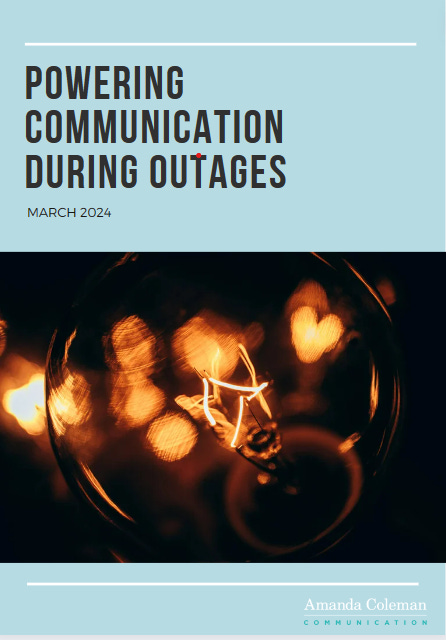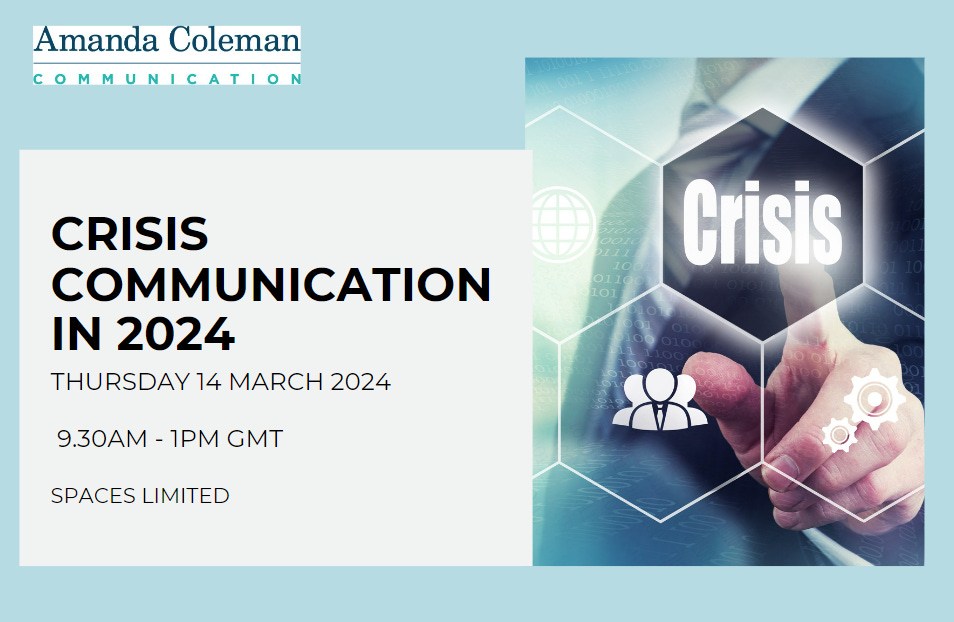Communicating without technology
Modern life relies extensively on the availability of power and the use of technology to communicate, share information and run systems. Being without power will have a significant impact now more than ever. It is why I have started to consider what businesses and individuals need to consider to be prepared.
The starting point has to be to recognised what the impact of a power outage would be for the short term, long term and also in different weather conditions. For example, getting people to bicycle or walk to share messages is going to be easier in the summer than in the winter.
I have put some points to consider in a new report that is being published next week. The report looks at what businesses need to consider when developing their plans. It also identifies the practical communication issues and challenges to overcome.
A recent outage involving AT&T was so serious it was reported as being raised with authorities up to the White House. It was said to be an ‘incorrect process’ rather than any kind of cyber attack. But it was another reminder of the importance of technology to our communication.
In a digital world going back to old analogue ways of working will be like trying to speak a different language particularly for young people who have been brought up with technology. If all this seems like a world away, remember with global uncertainties power outages are identified as a risk.
If you would like an early copy of the report email amanda@amandacolemancomms.co.uk
AI and crisis communication
Love it or loathe it artificial intelligence has a increasing part to play in modern life. It is important to understand the opportunities and start to work out how it will be or should be used. Listening to crisis comms specialist Philippe Borremans talk about the role of AI in the sector was an eye opener.
The session was arranged for Emergency Planning Society members and identified how AI could support planning, exercising and responding to a crisis. If you want to find out more about the developments in this area check out Philippe’s newsletter here.
It is clear all communicators need to be delving into AI to ensure they are able to grow as the systems develop.
Communicating with young people under pressure
Hot on the heels of publishing new research into the media habits of Gen Z, Rebecca Roberts a specialist in communicating with young people has spoken to Amanda on the latest 10 Minutes with chat. In it she considers what communicators need to consider when dealing with a crisis and engaging with young people.
Watch the short chat here.
Find Rebecca’s research on the CIPR website here.
Crisis Communication in 2024 Training
There are still a couple of spaces available for the half day training session Amanda is running to focus on the issues for crisis communication in 2024 and how to prepare for, and manage them. The training starts at 9.30am until 1pm on Thursday 14 March.
The session will look at AI, fake news, the speed of communication, developing inclusive communication and the impact of the trust deficit. For more information or to book a space contact office@amandacolemancomms.co.uk
In Brief:
Thanks to internal communication expert Rachel Miller for highlighting a really useful guide to neurodiverse communication. Understanding the points is important for crisis and risk communication. Find out more here.
Businesses need a deepfake response as part of their crisis communication plan, according to an article on the PR News website. Read more here.
The importance of emotional intelligence to build resilient teams that are crisis ready was covered in a recent article on Bnnbreaking. Find out more here.
An interesting report in Tech Republic looking at the importance of effective crisis communication in incidents of cyber attack in Australia. Read more here.
A study of emergency alerts and multilingual communication has highlighted huge challenges. Messages didn’t meet the needs of the audience, could be misunderstood or were not received. Find out more here.
The latest crisis communication case study - Testing Times - has been published. To receive a copy email amanda@amandacolemancomms.co.uk
Diary Dates:
On 7 March, Amanda is running her popular Crisis Management webinar for the PRCA. It starts at 10.30am and will give a 90 crash course in all things crisis management and communication. Find out more here.
On 10 April, Amanda is running the first crisis communication exercise giving people the opportunity of testing their decision making. The two hour session costs £50. If you are interested and would like to book a place email office@amandacolemancomms.co.uk





